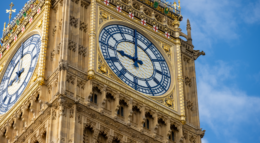
Different forms of a ‘No Deal’
The dichotomy between a 'Deal' and a 'No Deal' outcome from Brexit negotiations is a false one. A 'No Deal' can come in a multitude of different shapes and sizes many of which are satisfactory to the UK, says Jack Tagholm-Child.
The narrative about Brexit being portrayed in the media is of a dichotomy between either a deal or a 'No Deal' scenario.
But less discussed are the various forms a No Deal can take. Some better, some worse. As such, there are of course types of No Deal which are better than types of deal.
What has a real effect on the economy is not simply whether we reach some sort of arbitrarily defined deal/agreement with the EU. It is the terms we actually trade on – how easy it will be to do business with other countries inside the EU.
A 'deal' could be reached whereby we pay a huge sum of money to the EU, and in return we get limited access to the single markets. This outcome would not be good for our own economy in any real sense – but would be perceived by some to constitute a 'deal'.
Likewise, we could find ourselves in a situation whereby an official comprehensive deal has not been struck, but a great many side agreements, which facilitate the continuing of trade with relative ease, have been made.
The EU has previously struck a spectrum of different types of trade agreement with the EU, which in themselves do not constitute a comprehensive trade deal. They would fall under the banner of a 'No Deal', but would still allow for significant levels of trade to take place. Some of these examples are explored below.
Dr Lee Rotherham recently explained in a paper for The Red Cell, the EU has, based on The European Commission's own definitions, 42 different types of trade agreements with other states and regions.
These include an abundance of different levels of trade liberalisation and intergovernmental co-operation. The most comprehensive being the free trade agreement, signed in October 2016, between Canada and the EU known as CETA. CETA is what Michel Barnier has now suggested a Brexit trade deal would look like. An FTA like CETA for the UK should be far easier to conclude as our regulations are already at parity with the EU.
Examples of more modest agreements the EU has with other countries and trade blocs are those with Mexico and the Central American Integration System.
These agreements with Central America are of particular interest. Whilst not as comprehensive as CETA – they include 'further development' and 'evolutionary' clauses. These allow for further increases in trade liberalisation and co-operation, as the two consenting parties see fit in the future.
Other agreements the EU has, or has had historically, have simply been broad enabling treaties, which reduce tariffs and barriers to trade, but really just pave the way for future progress on these points. Examples include the deal the EU had with Canada pre-CETA, and the now suspended agreement with Syria.
These facilitate trade without necessarily being comprehensive trade deals. They also have the potential to become comprehensive trade deals in the future, revealing the grey area in the general portrayal of a 'No Deal' scenario.
All too often a No Deal arrangement is interpreted as one where talks have completely broken down and no agreements on any other matter relating to trade or governmental co-operation are made. They suggest a bitter dispute, whereby both sides give up completely on co-operating altogether.
This is, however, unlikely. In No Deal's most severe form – in which the UK leaves the EU with no formal trade deal in place – we would still fall back onto the World Trade Organisation's 'Most Favoured Nation' (MFN) rules. This would mean facing an average tariff on exports to the EU of just 5.3 per cent, while gaining all the freedoms of leaving the European Union.
Even this outcome does not entail the great economic crash many claim it would bring. The United States trades successfully with the EU on these terms. Indeed, in 2012 trade in goods alone between the US and EU stood at $650bn.
Even if Brexit talks fail to produce a comprehensive trade deal, it does not mean we would simply move onto WTO trade terms. As we've seen, EU trade relations with third party countries around the world are, in fact, very varied. And the EU is unlikely to favour no trade deal whatsoever, as this would hurt the EU 27 economies considerably.
There are many areas of trade in which it is detrimental for both sides to sign a reciprocal deal. What also seems to be forgotten is how much the EU itself fears a severe form of No Deal. No Deal would mean no British money. EU leaders and Angela Merkel's worst nightmare.
No Deal does not mean No Deal per se. The conclusion of Brexit negotiations could engender a trade agreement, which, while not comprehensive, would facilitate the continuation of relatively frictionless trade between the EU and UK. A sort of 'WTO Plus' agreement. This might also include clauses – like those previously mention – to signify the intention for more trade liberalisation on certain sticky issues unresolved in the two-year negotiation period, in the future.
The dichotomy between a 'Deal' and a 'No Deal' outcome from Brexit negotiations is a false one. In seeking to Get Britain Out of the EU on the best possible terms, we must be aware of all the various shapes and sizes of possible deals, and use them as a guide by which to secure Britain's own bespoke agreement. It's not simply a matter of Deal or No Deal.













